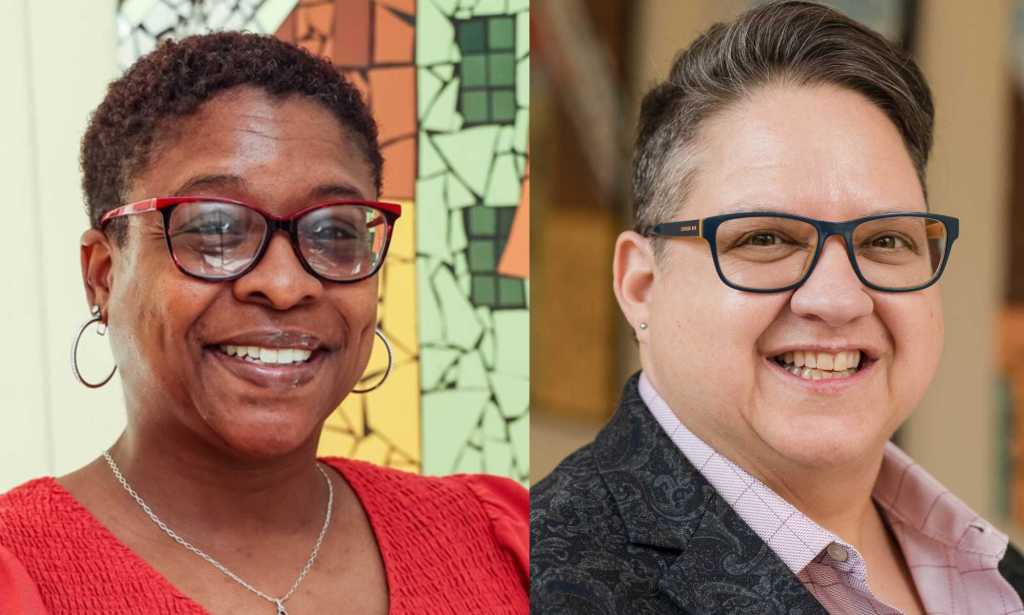Queer youth in LGBTQ+ foster home ‘grateful every day’ for ‘game-changing’ service

Queer youth in foster care say they’re ‘grateful every day’ for Avers TLP home – Illinois’ first foster home for LGBTQ+ youth. (Getty Images)
Queer youngsters in care say they are “grateful every day” for the service they receive from Illinois’ first foster home for LGBTQ+ youth.
Avers TLP home on Chicago’s North Side, a five-bedroom service run by Lawrence Hall, is a community-based service agency committed to helping heal the effects of childhood trauma. It opened in March and is being hailed as an “game-changer”.
The home aims to to affirm youth and help them learn to live independently, and opened following drawn-out negotiations with the Department of Children and Family Services (DCFS).
But after about 18 months, the hard-won battle has proved worth it, with youngsters at the home telling PinkNews it gives them a “rare chance”.
Steve says he likes the transitional home because “when I wake up I have access to food”. He proudly reveals that he’s recently started working at fast-food restaurant Wendy’s, enabling him to give Avers his pay cheque so he can get an additional $150 (approximately £120) of support.
“Staff are pretty professional with the youth, they always make sure they answer the phone if we need something. If I have an issue as far as a health or transportation, they’re always down to help, and give advice if we are feeling down and blue,” he explains.
Fellow resident Jenny says: “Avers has given me a very rare chance that not many people get.
“I’m grateful for that every day.”
The home provides LGBTQ+ youth with their own bedroom, and it currently cares for people aged between 18 and 19.
The team running the home are now calling on other states to follow their lead and open similar ventures.
Renee Lehocky, director of strategic initiatives, and Tracey Silas-Patterson, vice-president of transitional and independent living programmes at Lawrence Hall, tell PinkNews that it’s important for queer youth in need of family and shelter to have a place where they can be their “authentic selves”.

Lehocky says Lawrence Hall has “always been a leader in the space of LGBTQ+ services in child welfare” and Avers home builds on this, allowing youth to feel safe.
Silas-Patterson describes the home as “innovative, affirming [and] family-oriented”, with Lehocky adding that it’s “community-focused”.
Residents have often suffered a loss of connection with their families or faced a lack of acceptance from their loved ones because of their LGBTQ+ identities.
“Some youth would say they’d rather be on the streets than in foster care, and they’d run as they saw no one around them like them,” Lehocky says.
For this reason, Avers home uses LGBTQ+ staff to help the young residents see a future for themselves. At the moment, about 90 per cent of employees identify as LGBTQ+.
Silas-Patterson says the majority of youth come to the home having suffered abuse or neglect. The home helps them access a range of therapy, including art and music.
‘Game-changer for these youth’
“There’s also the LGBTQ+ stuff going on and we don’t make that invisible. Allowing it to be visible is a game-changer for these youths and also for the training that all our trainers go through,” Lehocky says.
She adds that the home was created to “teach the teenagers the skills of networking and building community around them”.
Silas-Patterson says the home provides “a place where they can be their authentic selves” and take pride in decorating their spaces, something they often wouldn’t have while in DCFS care.
According to the Human Rights Campaign research, LGBTQ+ youth are over-represented in foster care, with 30 per cent of the more than 391,000 children and youth in the system in the US identifying as queer.
The demand for affirming placements is something Lawrence Hall is working to fill. It is now in the process of negations with the DCFS in the hope of opening a second home in Chicago for younger teens, aged 14 to 17.
‘We’ve filled up the home so quickly’
“I hope that it grows and other people pick up the bottle,” Lehocky says. “We’ve filled up the home so quickly so we know there’s a big need. We want others to see what we’re doing and open [more homes] because Illinois is a big state.”
Lawrence Hall works with the Illinois LGBTQ+ Roundtable – which aims to promote education and a deeper understanding of the importance of inclusivity in the workplace – to continually improve child services in the Prairie State.
The collaborative effect has been improving children’s care since 2017 after a lot of teenagers from child welfare were seen to end up on the streets of Chicago.
How did this story make you feel?

